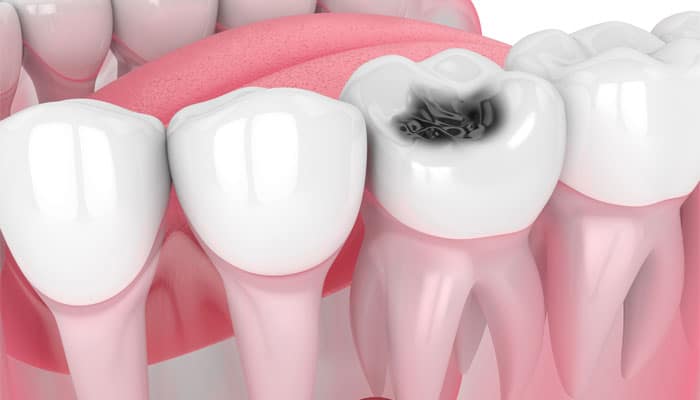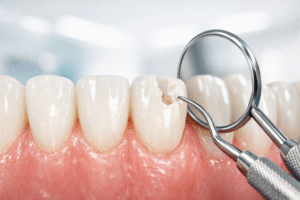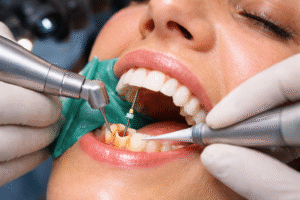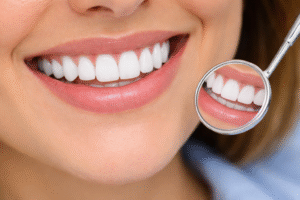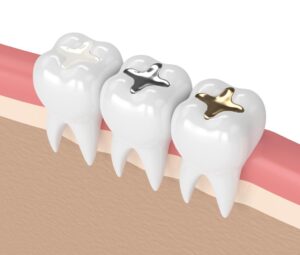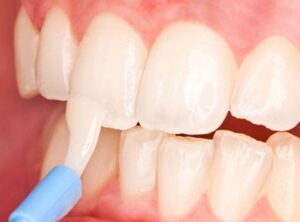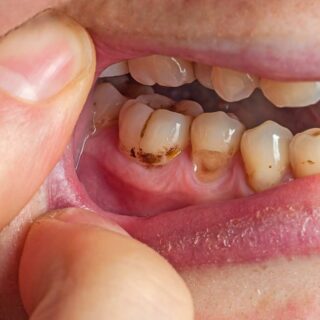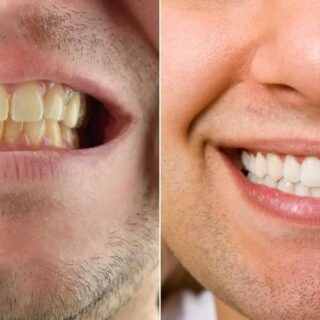In 2017, the incidence of tooth cavities in Egypt surpassed 60%, according to the Egyptian Dental Syndicate. And let me tell you, even if you follow a regular oral health routine, it’s still important to read this blog. Despite brushing and flossing, many people continue to struggle with cavities and seek effective tooth cavity treatment.
In this blog, we will explain how tooth decay happens, talk about the most common ways to treat it, and give you important tips to help avoid it.
What are Tooth Cavities?
Tooth cavities, also known as dental caries, are small holes that form in your teeth when acids from bacteria wear down the enamel, the tooth’s hard outer layer. These acids are produced by bacteria in dental plaque, which forms when sugars from food are metabolized by some bacteria. If plaque isn’t cleaned away by brushing and flossing regularly, it can wear down your tooth enamel and create cavities over time.
Cavities not only affect the tooth’s appearance but they can also cause pain, sensitivity, and even bigger problems. Taking good care of your teeth by brushing and flossing every day is key to preventing cavities and keeping your smile healthy.
What Causes Tooth Cavities
A cavity forms when bacteria in your mouth feed on sugary and starchy foods. These bacteria turn carbs, like sugars and starches, into acids. When food bits, saliva, acid, and plaque mix together, they create a sticky layer called dental plaque. If you don’t brush and floss regularly to remove this plaque, it can wear away the hard outer layer of your teeth (called enamel). Over time, the enamel can weaken and cause cavities to form.
Several factors contribute to cavity formation:
- Plaque and Tartar: Plaque hardens into tartar, which damages enamel and allows bacteria to reach deeper layers of the tooth.
- Sugary and Starchy Foods: Foods like candy, soda, and processed snacks feed the harmful bacteria in your mouth, increasing acid production.
- Poor Oral Hygiene: Inadequate brushing and flossing leave plaque to build up, accelerating decay.
- Risk Factors: Age, low fluoride levels, dry mouth, and certain health conditions (like eating disorders or acid reflux) increase the risk of cavities.
Explaining Signs of Tooth Cavities
At first, when tooth decay is only on the outer layer (enamel), you might not notice any problems. But as the decay gets deeper into the tooth, reaching the softer parts (dentin and pulp), you’ll start to feel or see some signs. Common symptoms of cavities include:
- Bad breath or a bad taste in your mouth, usually caused by bacteria growing in the decayed area.
- Pain in your tooth or mouth, especially when you bite down or put pressure on the tooth.
- Sensitivity to hot, cold, or sweet foods and drinks because the decay exposes the sensitive inner parts of the tooth.
- Bleeding gums, which might mean you have gum disease along with the cavity. Swelling in your face, which can happen if the cavity leads to an infection or abscess.
If you notice any of these signs, it’s important to see your dentist right away to stop the problem from getting worse.
Stages of Cavities
- Demineralization: Small white, chalky spots appear on the enamel as minerals are lost, signaling the beginning of decay.
- Enamel Damage: As the decay gets worse, the hard outer layer of the tooth (enamel) keeps breaking down, and holes (cavities) can form. White spots on the tooth may turn light brown.
- Dentin Damage: The decay spreads to the softer layer under the enamel (dentin), making cavities grow faster.
- Pulp Damage: When the decay reaches the inner part of the tooth (pulp), where nerves and blood vessels are, it can cause pain, red gums, and swelling.
- Tooth Abscess: If not treated, a deep cavity can cause an infection, creating a pocket of pus at the root of the tooth. This leads to strong pain, swelling in the face, and the infection can spread to other areas.
How to Stop Tooth Decay from Spreading: Tooth Cavity Treatment
To prevent tooth decay from worsening and spreading, several treatment options are available:
- Fluoride Treatments: Fluoride strengthens enamel and can even reverse early-stage cavities. Dentists apply fluoride in the form of gels, foams, or varnishes to remineralize and protect teeth.
- Dental Fillings: When a cavity forms, the decayed part is removed and filled with materials like composite resin or porcelain to restore the tooth’s structure and function.
- Crowns: For severely decayed or weakened teeth, a crown, made of materials like zirconia or porcelain, can provide strength and protection by covering the entire tooth.
- Root Canal: If decay reaches the tooth’s pulp, a root canal removes the infected tissue, relieving pain and preserving the tooth with a permanent filling.
- Tooth Removal: If the decay is too bad to fix, the tooth might need to be pulled out.
Tips on How to Prevent Cavities
- Brush your teeth at least two times every day using a soft toothbrush and toothpaste with fluoride. Use floss every day to get rid of food bits and plaque from between your teeth where your toothbrush can’t clean.
- Limit sugary snacks, drinks, and processed foods, which contribute to plaque buildup and feed cavity-causing bacteria. Replace them with healthier options, such as fruits, vegetables, and proteins, which will help in maintaining good oral health.
- Drink a lot of water during the day to help remove food bits and keep your mouth moist. This helps balance the acids in your mouth.
- Stick to regular dental checkups, visit your dentist at least twice a year. These appointments help in the early detection of cavities and permit preventive treatments, such as fluoride applications.
Get The Best Dental Treatments at El-Shenawy Clinics
At El-Shenawy Clinics, we are committed to providing the highest quality dental care, ensuring you maintain a healthy, beautiful smile for years to come. Our expert team specializes in comprehensive tooth cavity treatment, offering a variety of services, all designed to stop decay and restore your dental health. We understand that tooth cavity treatment cost can be a concern for many, which is why we offer competitive pricing, allowing you to receive the care you need without compromising your budget. Your dental health is important, and at El-Shenawy Clinics, we make it our priority to provide personalized, affordable treatment options.
Book your appointment today and experience exceptional care at El-Shenawy dental centers.
Frequently asked questions
- Can a cavity in a tooth heal on its own?
In the very early stages, a cavity can be reversed with fluoride treatments, which help remineralize the enamel. However, once a cavity has formed a hole, it cannot heal on its own and requires treatment.
- Can you fix a cavity without filling it?
No, once a cavity has caused damage to the tooth, it generally requires a filling or other restorative treatment to prevent further decay and restore the tooth’s structure.



